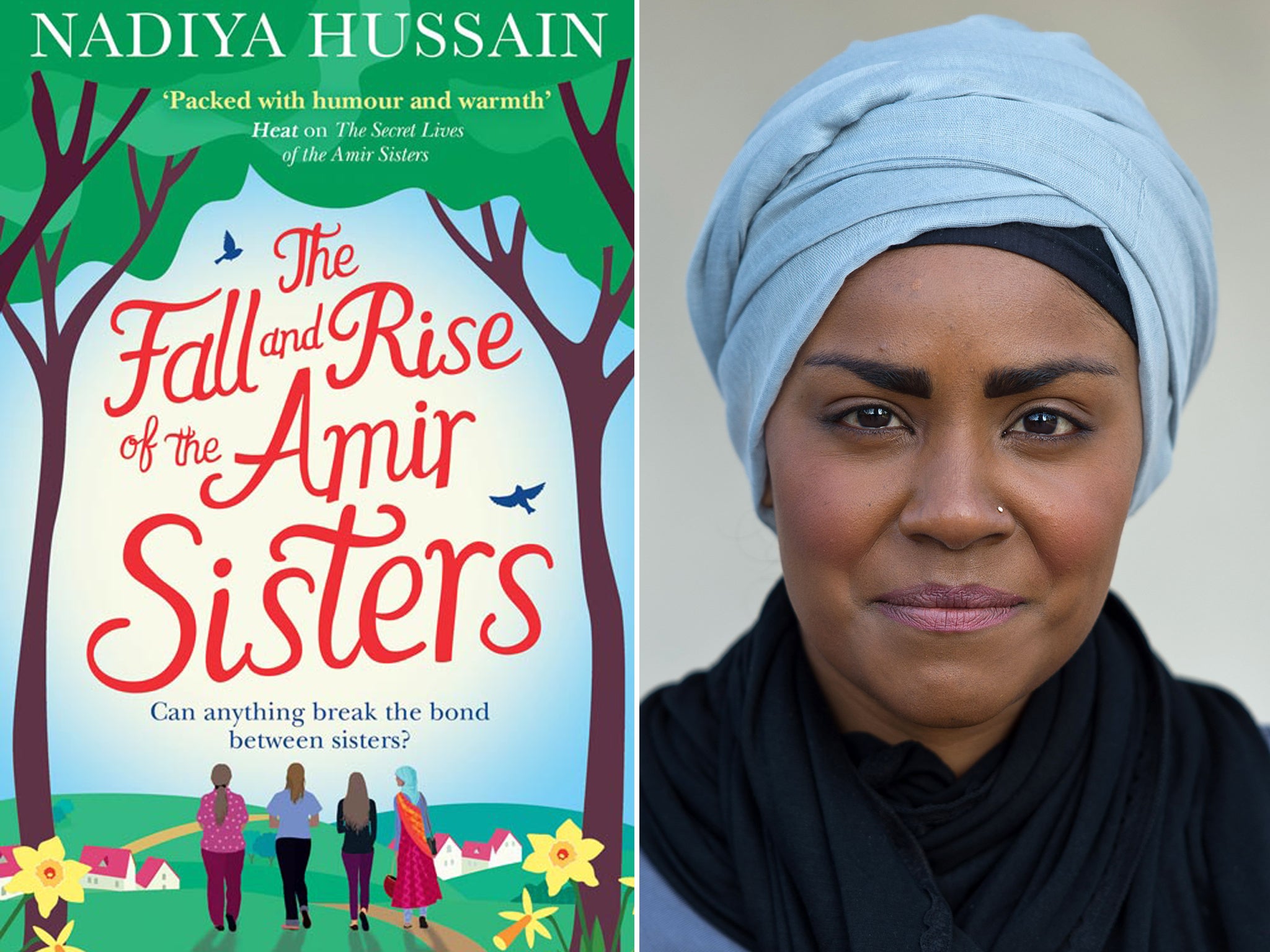The Fall and Rise of the Amir Sisters by Nadiya Hussain review: An enriching read from the Bake Off winner
Co-written with Ayisha Malik, Nadiya Hussain's second novel is more than just fluff

Your support helps us to tell the story
This election is still a dead heat, according to most polls. In a fight with such wafer-thin margins, we need reporters on the ground talking to the people Trump and Harris are courting. Your support allows us to keep sending journalists to the story.
The Independent is trusted by 27 million Americans from across the entire political spectrum every month. Unlike many other quality news outlets, we choose not to lock you out of our reporting and analysis with paywalls. But quality journalism must still be paid for.
Help us keep bring these critical stories to light. Your support makes all the difference.
When Nadiya Hussain’s first novel, The Secret Lives of the Amir Sisters, came out in January 2018, it was deemed “lovely”, “funny” and “breezy”. That all three adjectives could also be applied to its sequel, The Fall and Rise of the Amir Sisters, might give the impression that this is a fluffy novel – an entertaining if ultimately insignificant read.
Adding to that is the fact that Hussain is best known as the winner of the 2015 edition of The Great British Bake Off. Or that The Fall and Rise of the Amir Sisters, like the first book in the series, is ghostwritten by author Ayisha Malik, whom Hussain thanks in her acknowledgements.
In a 2016 interview with The Irish News, Malik described their partnership as follows: “We sit down and have meetings about characters and plotlines and what kind of stories she wants to tell and we come up with a chapter breakdown. Then I go away and write the first draft for her to edit.”
Whoever it's really written by, The Fall and Rise of the Amir Sisters is, in fact, bold in tackling serious topics, with mental health issues, sexuality, faith and failed ambitions driving the plot. One of the sisters experiences a difficult pregnancy while her sibling goes through infertility. In a particularly heavy moment, a husband turns to his wife in the middle of an existential crisis and asks: “Who am I?”
The Secret Life of the Amir Sisters was billed as a British Muslim take on Little Women, set in the quiet English village of Wyvernage. This second instalment features the same cast of characters: the independent-minded Bubblee (the Jo March of Hussain’s universe), coming to terms with an unsuccessful attempt at an artistic career in London; the responsible Farah (Meg), experiencing marital difficulties as she and her husband attempt to rebuild their life together after a car crash; the formerly timid Fatti (Beth), pregnant with her first child, and the impetuous Mae (Amy), who is starting university while managing her YouTube fame.
Plot-wise, the novel picks up not too long after the events of Hussain's debut, but there are a few notable differences in the form of the storytelling. The Secret Life of the Amir Sisters was told from alternative points of view, jumping from one sister’s mind to the other. The Fall and Rise of the Amir Sisters is told instead entirely in the third person, with excerpts from the four sisters’ WhatsApp chat inserted on occasion between paragraphs.
A novel led by four female British Muslim characters, and marketed to a mainstream audience, is still a rare thing – and one worthy of celebration. The Amir sisters are of Bangladeshi descent, like Hussain, a second-generation British Bangladeshi born in Luton.
The characters shaped by Malik and Hussain’s minds are smart, multifaceted, and offer clever reflections on tradition and the place of faith in the sisters’ lives. None of them are tokenistic. At times, the most progressive characters end up acting like prudes, and vice-versa. Misogyny and sexism are central themes of the book and frequently crop up in the siblings’ conversations. “Why is it that when women have problems we manage to go about things just the same, get on with it, but men? When they have problems the whole house comes to a standstill,” wonders Farah. “Everything’s about what they want. What they need.”
In the end, and after a decidedly un-fluffy twist, The Fall and Rise of the Amir Sisters succeeds in showing how gender stereotypes hurt everyone – men and women alike. All of this makes for an enriching, thought-provoking and – yes – entertaining read.
The Fall and Rise of the Amir Sisters is published by HQ
Join our commenting forum
Join thought-provoking conversations, follow other Independent readers and see their replies
Comments